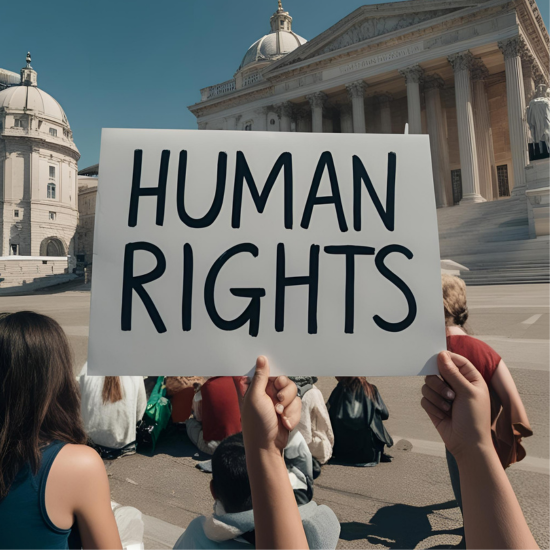Remember when the so-called Iranian “moral” Police killed a girl for not wearing her headscarf properly? (If you don’t, read it here). Let’s imagine for a second she would have shouted “hey guys, respect my human rights.” Surely, the Universal Declaration of Human Rights would have appeared like a Deus ex Machina and built a shield of protection around her?
No?
Why not?
Because in each and every country, only national law is being enforced. If you happen to live in one of the tamer countries, yeah, you enjoy “human rights,” but only insofar as the human rights declarations have been fully and effectively enshrined in national law. Only national law is enforced. And if you technically enjoy rights, but can’t enforce them, it’s like owning a city of gold on Pluto—useless. Nobody possesses rights for being human, but only due to his/her relation to a state.
Wouldn’t it be nice thou? For sure.
But let’s check with reality:
Human rights violations are everywhere. Be it in butcher Assad’s torture cellars, the U.S. torturing in Guantanamo, anti-gay purges in Chechnya, or Palestinians in Israeli custody. Actually, there is an endless list of human rights abuses: if you want to feel depressed, check it out: https://en.wikipedia.org/wiki/Category:Human_rights_abuses_by_country.
Yet the discourse of human rights continues to flourish. It seems to be all liberal, western politicians talk about. (“Yeah, we traveled to China and dropped the H-word”. I bet China is shivering and is gonna make the Uyghurs equal members of society now, so that the spirit of human rights won’t hunt them down…)
So why not have other countries enforce human rights?
Because that is not how the world works. The world is organized in sovereign states. And they are mostly reluctant to fix problems elsewhere, be it with money or soldiers. In international law, most countries respect the sovereignty of states. Only the U.S. keep challenging this concept, saying there is a “right to protect”, but somehow they “protect” very selectively, so that one might wonder, whom they are actually “protecting” but their interests? And if they try, it turns out that foreign invasions tend to be vastly unpopular.
Okay, there is the European Court of Human Rights. Of course, in the continent of liberal dreamers such a thing would exist (those Europeans are trying in a way; let’s give them that.) This court takes on cases remotely related to Europe. For example, the court found that depriving a British subject of his blanket in prison was not alright and they implemented some sort of compromise. So, yup. Human rights being implemented? Tecnically yes, but agian, this only works because the UK plays nice with its citizens, not because humans have intrinsic rights. Guess what? Nobody sued Syria about prisoner blankets…

And even in Europe wonderland, and this is as good as it gets with regard to human rights courts, the European Court of Human Rights lacks implementing powers.
The Council of Europe Commissioner for Human Rights, Nils Muižnieks, stated: “Our work is based on cooperation and good faith. When you don’t have that, it’s very difficult to have an impact. We kind of lack the tools to help countries that don’t want to be helped.”
So, if your country doesn’t want to be “helped,” don’t put faith in human rights.
Putting up rights as a wish-list, as
If you call rights, what are not rights, but merely a wish-list of what ideally should be a right, you naturally create disappointment. Comparably several South American countries made a wishlist of their constitutions in recent years. This eventually makes a joke out of what should be rights. Good luck enjoying your “right to resist oppression” in Venezuela.
So, let’s not waste more time on human rights pretty talk and focus on holding governments accountable. (Mostly futile too, but less misguided…)
Want to know why the International Criminal Court only sentences Africans? Read here!





